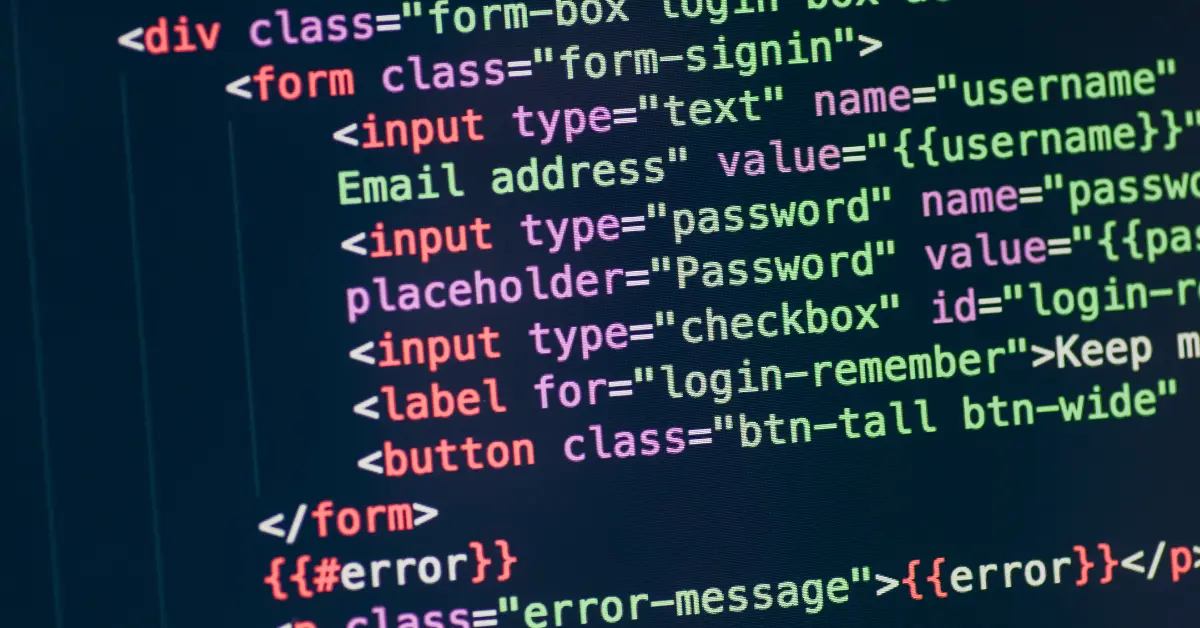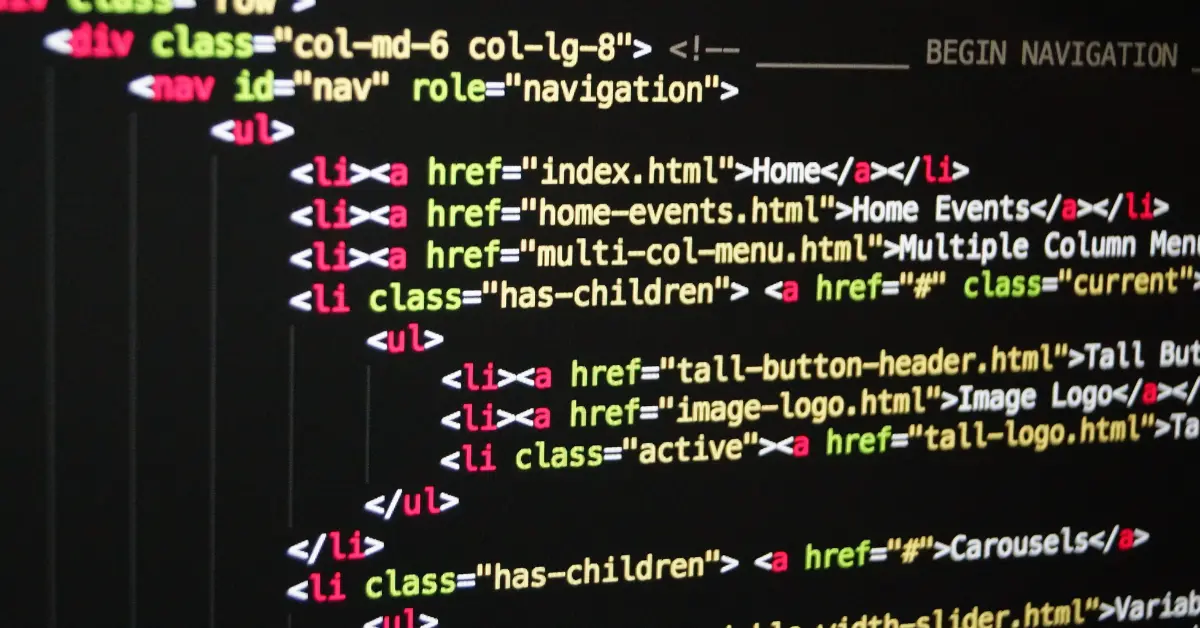Clean code is a term that is often emphasized in software development. But what does it mean? Clean code refers to code that is easy to read, understand, and maintain. It is the result of implementing good coding practices that make the code base more efficient, robust, and less prone to errors. In today’s fast-paced
software development world, writing clean code is not just a nice-to-have skill but a necessity.
Whether you are a beginner or an experienced developer, writing clean code should be a top priority in your coding journey. In this blog post, we will discuss the importance of clean code in software development, the key principles to follow, and tips on how to write clean code effectively.
The Importance of Clean Code In Software Development:
Clean code is crucial for the success of any software project. Here are some reasons why writing clean code is essential in software development:
1. Easy to Understand and Maintain
Clean code is easy to read and understand, even for developers who did not write it. It follows a consistent coding style and structure, making it more predictable and less confusing. When code is easy to understand, it becomes easier to maintain and update in the future. This is especially important when working in teams, as it allows for better collaboration and faster development cycles.

2. Reduces Technical Debt
Technical debt is a term used to describe the extra cost incurred from quick and careless coding practices. This includes writing code that is hard to understand, not properly commenting, and not following coding standards. Technical debt slows development processes, hinders productivity, and can lead to more errors. Writing clean code reduces the chances of incurring technical debt and saves time and effort in the long run.
3. Increases Code Efficiency
Clean code is optimized for performance, making it more efficient and less resource-intensive. This is because it follows best practices and coding standards that promote efficiency, such as using appropriate data structures and algorithms. Writing clean code ensures your application runs smoothly and can handle many users without issues.
4. Promotes Collaboration
In software development, collaboration is key to successful project delivery. By writing clean code, team members can easily work on different parts of the codebase without interrupting each other’s work. It also makes it easier for developers to spot and fix errors, resulting in faster and more efficient collaboration.
Principles of Clean Code
Now that we understand the importance of clean code let’s discuss some principles you should follow when writing clean code.
1. Keep It Simple
The first principle of clean code is to keep it simple. This means writing code that is easy to understand and follow. Avoid using complex solutions when a simpler one will do. Remember that simple code is easier to test, maintain, and update in the future.

2. Follow Coding Standards
Coding standards are a set of guidelines and best practices for writing code. Following coding standards helps to maintain a consistent coding style throughout the project. This makes it easier for developers to understand and collaborate. Some popular coding standards in software development include Google’s Style Guide, PEP 8 for Python, and Airbnb’s Style Guide.
3. Write Self-Documenting Code
Self-documenting code is code that is easy to understand without any additional comments. It uses descriptive functions, variable names, and a consistent coding style. This makes it easier for other developers to understand the code without extensive documentation.
4. Practice Code Refactoring
Code refactoring is the process of restructuring code without changing its functionality. Refactoring your code can improve its readability, maintainability, and performance. It also helps identify and eliminate code smells and indicators of poorly written or unnecessary code.
5. Write Automated Tests
Writing automated tests alongside your code is a key practice for writing clean code. Tests ensure that your code is functioning correctly and act as a safety net when making changes to the code. With a comprehensive test suite, you can confidently make changes without fearing breaking existing functionality.
Tips for Writing Clean Code
1. Use Meaningful Names
Names of functions, variables, and classes should be descriptive and meaningful. Avoid using abbreviations or single-letter names that are difficult to understand. This helps to make your code self-documenting and easier to maintain.
2. Comment Your Code
While we aim for self-documenting code, it is still important to comment on your code to provide context and explain complex solutions. Comments should be concise, relevant, and placed where they are needed. Avoid leaving large blocks of code without comments, as it may make your code harder to understand.
3. Keep Your Functions and Classes Short
Functions and classes should have a specific purpose and be kept short. This makes them easier to understand, test, and maintain. As a general rule, functions should not exceed 10 lines of code, and classes should not have more than 200 lines.
4. Don’t Repeat Yourself (DRY)
The DRY principle states, “Every piece of knowledge must have a single, unambiguous, authoritative representation within a system.” This means avoiding code duplication and using abstraction to eliminate repeated code. This principle reduces the risk of introducing bugs and makes your code more maintainable.
5. Use Version Control
Version control systems, such as Git, are essential tools for writing clean code. They allow you to track changes to your code, collaborate with team members, and revert to previous versions if needed. This is especially useful when making code changes that may introduce bugs or errors.
Conclusion
In summary, writing clean code is vital for any software developer. Following the principles and tips discussed in this post can improve your code’s quality, efficiency, and maintainability. Remember to keep it simple, follow coding standards, and practice code refactoring regularly. With practice and dedication, you can become a master of writing clean code and take your software development skills to the next level.
FAQs About Clean Code
1. Is it possible to write clean code while meeting tight deadlines?
Yes, it is possible to write clean code while meeting tight deadlines. Writing clean code can increase productivity and reduce the chances of introducing errors, ultimately saving time in the long run.
2. How can I convince my team to follow clean code practices?
One way to convince your team is to show the benefits of clean code, such as increased efficiency, code maintainability, and easier collaboration. You can also lead by example and share resources on clean code practices with your team.
3. Is code refactoring necessary?
Yes, code refactoring is essential for maintaining clean code. It helps to improve code readability, performance, and maintainability. Set aside time for regular refactoring tasks to keep your codebase clean and efficient.
4. Are there any tools available for writing clean code?
Many tools and plugins are available for various programming languages to help enforce standards, automate, and refactor code. factpopular ones include ESLint, Prettier, and SonarQube.
5. Can I learn clean coding practices on my own?
You can learn clean coding practices through online resources, books, and tutorials. You can also gain hands-on experience by practicing and reviewing your code.




